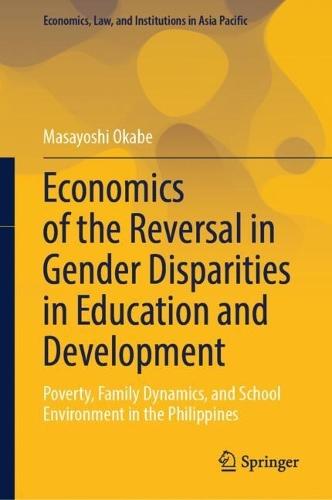Overview
This book examines the background and consequences of the reversal in gender disparities in education through the case of the Philippines. While global education and development discourse has long emphasized girls’ disadvantage, a reversal—where boys are falling behind in education—has also recently emerged in a number of countries in developing contexts. This book critically investigates this issue in the Philippines, hailed as the top runner of gender equality in Asia and the Pacific, where boys—especially those from poorer households and in rural areas—are increasingly falling behind. Drawing on data from three provinces across the archipelago’s main regions—Luzon, Visayas, and Mindanao, the book empirically traces the background and consequences of the reversal in family dynamics and school environments amid poverty and uneven development. It reveals that boys’ educational disengagement cannot be understood independently of broader socioeconomic structures. While girls may outperform boys in education, labor market and familial systems often continue to disadvantage women, recursively shaping boys’ educational disengagement. Through the lens of intergroup heterogeneity, this book offers an in-depth examination of the nature of the reversal. The economics of reversal is thus used not merely to describe, but to rigorously interrogate surface-level shifts that may obscure deeper, enduring asymmetries. The book adopts an interdisciplinary approach combining development economics, education, and area studies, aiming to bridge econometric rigor and field-based contextual sensitivity. It is intended for scholars, educators, policymakers, and students interested in evolving patterns of education and development. This volume presents an expanded and refined development of the author’s earlier research, which was awarded the Main Prize at the 19th Asia Pacific Research Prize (Iue Prize), conferred by the Asia Pacific Forum, Awaji Conference Japan.
Full Product Details
Author: Masayoshi Okabe
Publisher: Springer Nature Switzerland AG
Imprint: Springer Nature Switzerland AG
ISBN: 9789819692705
ISBN 10: 9819692709
Pages: 316
Publication Date: 02 October 2025
Audience:
Professional and scholarly
,
College/higher education
,
Professional & Vocational
,
Postgraduate, Research & Scholarly
Format: Hardback
Publisher's Status: Active
Availability: Not yet available

This item is yet to be released. You can pre-order this item and we will dispatch it to you upon its release.
Author Information
Masayoshi Okabe is an associate professor of development economics at the Faculty of Economics, Graduate School of Humanities and Social Sciences, Saitama University, Japan, and is concurrently a visiting professor at the School of Labor and Industrial Relations (SOLAIR), University of the Philippines Diliman (UPD), Philippines. He earned his Doctor of Philosophy from the University of Tokyo in 2019. His scholarly interests include human capital investment, poverty alleviation, intrahousehold resource allocations, discrimination and prejudice, the education-to-labor market nexus, educational policy reforms, and Philippine area studies.



